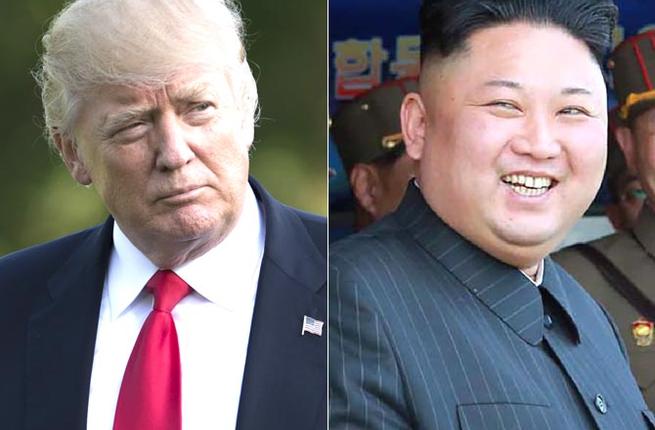For the last twenty years, North Korea has been a convenient target for the United States, a country easily fingered out and labeled as “evil,” “untrustworthy,” and even “crazy.”
With South Korea having brokered what appears to be a chance, however slim, to denuclearize Pyongyang, it becomes crucial to take a moment and reflect on history to remember the U.S. has also fielded a record of dishonesty when dealing with North Korea, a fact that will surely frame the way Kim Jong-Un approaches any upcoming summit with President Donald J. Trump.
Let’s be clear, I am not a North Korean apologist. The North Korean regime is oppressive and cruel. This is beyond dispute. I also live in South Korea, in range of North Korean missiles. What I will dispute, however, is the notion that Pyongyang is the only untrustworthy party involved.
For those who have studied the rhetoric and culture closely, North Korea has actually been very consistent about what it wants for the last thirty years: normalized relations with the U.S. Pyongyang knows that obtaining this from Washington will prompt other countries to eventually fall into line, allowing North Korea to solidify power internally and start developing the country through international trade unhampered by economic sanctions. Anyone who thinks Pyongyang has goals other than this really hasn’t been paying attention.
The U.S., on the other hand, has been much less consistent about its goals. It surprises many to know that North Korea was originally a member of the Treaty on the Non-Proliferation of Nuclear Weapons (NPT), having signed on in 1985.
In 1992, the International Atomic Energy Agency began inspections of North Korea and found discrepancies between inspector data and what Pyongyang had officially reported. Inspectors requested access to two plutonium waste sites, a request North Korea refused, precipitating Pyongyang’s withdrawal from the (NPT) in the summer of 1993 and the first North Korean nuclear crisis.
In the winter of 1993, Pyongyang proposed to Washington that both countries resolve “all issues dividing them.” The Clinton administration was receptive, halting joint “Team Spirit” military exercises with South Korea as a show of good faith before beginning negotiations that resulted in the “Agreed Framework.”
This agreement essentially held four provisions: 1) North Korea would halt its graphite-moderated nuclear reactors; 2) the U.S. would build two light-water nuclear reactors by 2003 to replace the graphite ones; 3) the U.S. would provide oil as an alternative energy source in the interim; and 4) both sides would move to a full normalization of diplomatic and economic relations.
Despite both sides signing off on the agreement in 1994, the change of U.S. congressional power to Republican control made implementation difficult. North Korea initially made good on its promise to freeze reactors and allowed inspectors back in. The Clinton administration, on the other hand, struggled to provide the oil and find funding for the light water reactors amid congressional resistance. This resulted in significant delays in both oil shipments and construction plans.
The provision most important to Pyongyang, the phasing out of economic sanctions placed on North Korea since the end of the Korean War, was something Bill Clinton failed to deliver entirely, prompting much outrage from Pyongyang and the eventual secret resumption of nuclear activity in 1998.
Looking at things from the North Korean perspective, you could even say Pyongyang had been patient, waiting for over three years before deciding the U.S. was not going to be able to deliver on its promises. Since the collapse of the Framework, American attitudes towards North Korea have turned increasingly negative, bolstered in part by President George W. Bush’s proclamation of North Korea as part of an “axis of evil,” a complete turnaround from the reconciliatory tone dominating the 1994 agreement.
With a U.S.-North Korean summit looming somewhere in the near future, the only question the Trump administration needs to answer is whether they want to normalize relations with North Korea. This has been and still is Pyongyang’s primary objective.
There will be many in the U.S. who say an oppressive country like North Korea should not be allowed such dignity. Unfortunately, the U.S. has never really been consistent with this principle, regularly doing business with countries like Saudi Arabia and Turkmenistan who score just as poorly as North Korea on civil liberties and political rights, according to the annual “Freedom in the World” report. Ultimately, this will not be a question of morals.
I hope Washington will realize this may be the last good chance to denuclearize North Korea in the foreseeable future. Kim Jung-Un appears to be playing his part, visiting Beijing to reassure China that his intentions are genuine and reaffirming his goal: normalized relations with the U.S. Kim is a man who has bankrupted and starved his country by going all-in on nuclear weapons to create this moment. President Trump, the next move is yours. History will remember if you dealt in good faith or not.






















